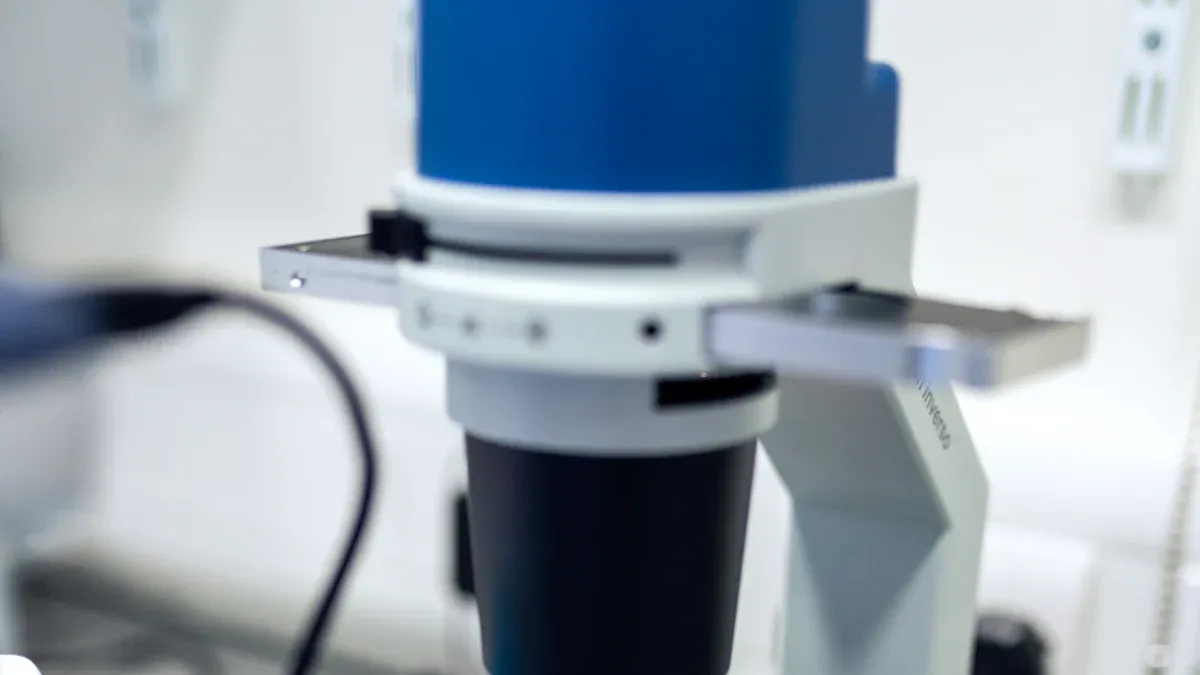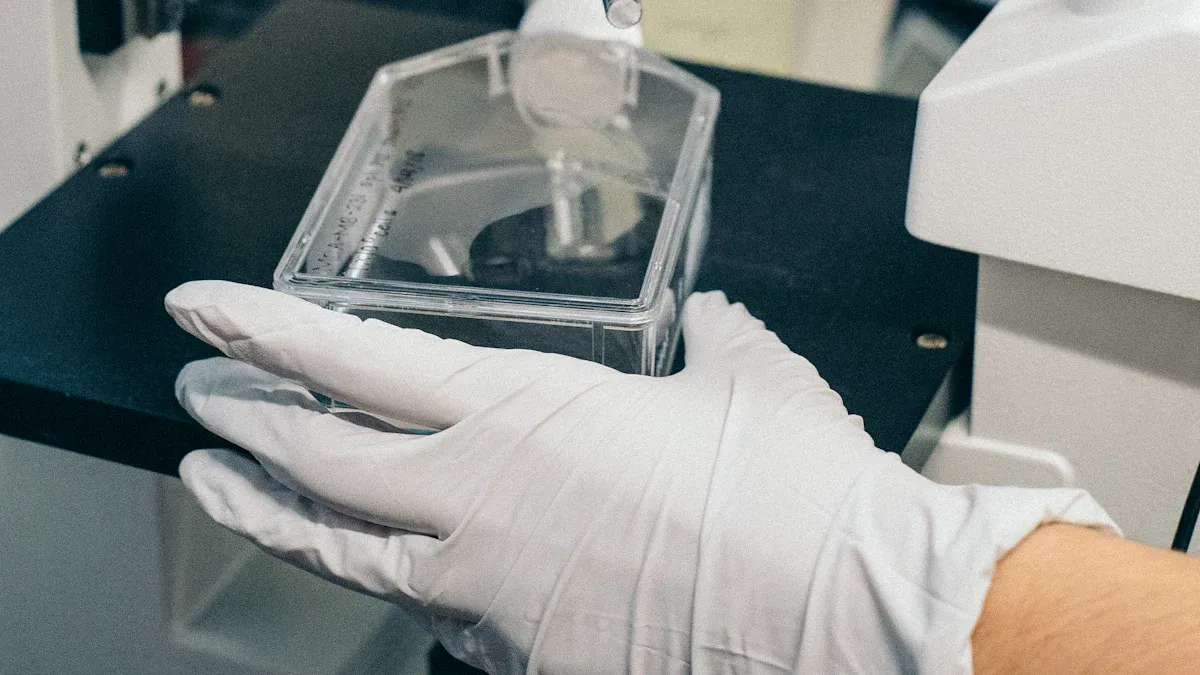What Makes Nitinol Tubing Biocompatible and Corrosion-Resistant for Medical Use

Nitinol tubing is crucial in the production of medical devices. Doctors and engineers prefer nitinol because of its excellent Nitinol Tubing corrosion resistance, making it safe for use inside the body. The titanium oxide layer on nitinol tubes enhances this corrosion resistance, protecting patients from adverse reactions. Additionally, surface treatments further improve the corrosion resistance of nitinol tubing. Patients trust nitinol tubes because they maintain their integrity and performance over time within the body. Medical professionals rely on nitinol tubing in a wide range of devices, including surgical tools. Hospitals use nitinol tubing to provide better care, as it makes medical devices safer and more reliable.
Key Takeaways
Nitinol tubing makes a thin titanium oxide layer. This layer protects the body and keeps nickel inside. It makes nitinol safe and biocompatible.
Special surface treatments like electropolishing make the layer stronger. These treatments lower the chance of allergies. They also help nitinol tubes last longer in the body.
The titanium oxide film gives nitinol tubes strong corrosion resistance. They do not need extra coatings. This saves time and money when making them.
Nitinol tubes can bend and stretch. They go back to their original shape. This makes them great for medical devices like stents and guidewires.
Doctors trust nitinol tubing because it does not rust. It lasts a long time. It helps patients heal safely and well.
Biocompatibility of Nitinol Tubes

Titanium Oxide Layer
When nitinol tubes touch air, a thin titanium oxide layer forms. This layer works like a shield. It keeps nitinol from touching body tissues and fluids. The titanium oxide layer stops bad substances from leaving the tubes. This helps keep patients from having allergic reactions. Many experts say this layer is why nitinol is biocompatible. The titanium oxide layer also keeps nickel inside the tubes. This is important for keeping patients safe.
Note: The titanium oxide layer forms by itself and does not need extra chemicals. This makes nitinol tube technology safe and dependable for medical use.
Nickel Ion Release
Nitinol tubes have both nickel and titanium. Nickel can cause allergies in some people. The titanium oxide layer blocks most nickel ions from getting out. This lowers the chance of nickel allergies. Studies show good nitinol tubes let out very little nickel. The amount is much less than what causes problems for most people. Medical devices with nitinol tubes are known to be safe. Doctors trust nitinol tubes to protect patients from nickel.
Surface Treatments
Manufacturers use special surface treatments to make nitinol tubes safer. Electropolishing is a common way to do this. It makes the surface smooth and removes tiny flaws. This process makes the titanium oxide layer stronger and more even. Other treatments, like passivation, help too. These methods make nitinol tubes more biocompatible. They lower the chance of allergies and help tubes last longer in the body.
Surface treatments give these benefits:
Lower nickel ion release
Make cleaning easier
Make nitinol tubes look and feel better
Clinical studies show that good nitinol tubes work well in the body. They do not cause bad reactions in most patients. Hospitals and doctors pick good nitinol tubes for safety and trust. Nitinol tube technology keeps getting better, making medical care safer for everyone.
Nitinol Tubing Corrosion Resistance

Protective Oxide Film
Nitinol tubes get a thin titanium oxide film on them. This film acts like a shield. It keeps the metal safe from rust. The titanium oxide film stops water and chemicals from touching nitinol. This helps the tubes stay safe in the body. The film also blocks bad reactions with body tissues. Because of this, nitinol tubing corrosion resistance stays strong for a long time. The titanium oxide film forms by itself when nitinol meets air. This means the tubes are ready for medical use right away. The protective film is why nitinol tubes resist corrosion so well.
Resistance to Bodily Fluids
Fluids in the body, like blood and plasma, can damage many metals. Nitinol tubing corrosion resistance is very good in these tough places. The titanium oxide film stops most damage from body fluids. Nitinol tubes do not rust or break down fast. This means they last longer and work better. Good nitinol tubes change very little even after years in the body. Doctors use nitinol tubes for implants and other devices because they resist corrosion. Patients get safer and more dependable care.
Tip: Nitinol tubes keep their strength and shape even after being in body fluids for a long time.
No Need for Extra Coatings
Many metals need extra coatings to stop rust. Nitinol tubing corrosion resistance is so strong that extra coatings are not needed. Good nitinol tubes use their natural titanium oxide film. This means fewer steps to make the tubes. Skipping extra coatings saves time and money. The process is easier and faster. The table below shows how skipping coatings changes manufacturing:
Factor | Impact on Manufacturing Complexity and Cost |
|---|---|
Machining difficulty | Nitinol's unique properties make it hard to cut and shape, increasing complexity and cost |
Finishing processes | Additional steps like electropolishing and passivation add time and cost |
Taking away extra coatings and finishing steps makes manufacturing easier and cheaper. Good nitinol tubes still have great corrosion resistance without extra layers. This makes nitinol tubing a smart pick for many medical uses. Doctors and engineers know nitinol tubes will stay safe and strong in the body.
Nitinol tubing corrosion resistance helps keep patients safe for a long time. The natural titanium oxide film, strong resistance to body fluids, and no need for extra coatings all help. These things make nitinol tubes a top choice for medical devices.
Medical Benefits of Nitinol
Shape Memory and Superelasticity
Nitinol tubes are special in making medical devices. They have shape memory and superelasticity. These features come from how nitinol changes its atomic structure. The two structures are martensitic and austenitic phases. When nitinol is cold, it can bend and twist without breaking. If you heat it, it goes back to its first shape. This helps doctors use nitinol tubes in devices that change shape in the body. Superelasticity lets nitinol tubes stretch or squeeze and then return to their shape. Stents and guidewires use this to fit in small spaces and then expand. In heart care, nitinol tubes help stents open blocked arteries and stay in place. Shape memory and superelasticity make nitinol a top pick for many medical uses.
Nitinol’s shape memory alloy structure lets it go back to its shape after bending, which is important for devices that move with the body.
Fatigue and Kink Resistance
Nitinol tubes do not break easily from bending or twisting. They can bend many times and still work. Other metals, like stainless steel, can break after being used a lot. Nitinol tubes last longer because of their special features. These features stop cracks and breaks, even after lots of use. Nitinol tubes also do not rust as much as other metals. This makes them safe to use in the body for a long time. Doctors trust nitinol tubes for implants and devices that need to last. In heart care, nitinol tubes keep blood vessels open and help healing.
Nitinol tubes give:
Good resistance to bending over and over
Better strength than other metals
The ability to bend many times without breaking
Trustworthy use in medical devices
Applications in Devices
Nitinol tubes are used in many medical devices. Their shape memory and superelasticity help them work in stents, guidewires, and catheters. In heart care, nitinol tubes help stents open up arteries and keep them open. Guidewires made from nitinol can move through small blood vessels without bending too much. Catheters use nitinol tubes to reach hard places in the body. These devices help keep patients safe and make surgeries easier. Doctors can treat patients faster and with less risk. Nitinol tubes are also used in braces, rods for the spine, and toe devices. Studies show nitinol tubes help patients heal faster and get better results.
Clinical Application Area | Observed Clinical Outcome | Supporting Evidence Type |
|---|---|---|
Ankle-Foot Orthoses (AFOs) | Superelastic nitinol springs help people with drop foot walk better, matching normal ankle movement. | Biomechanical analysis and walking study |
Toe Deformity Correction | Superelastic nitinol orthoses fix toe problems better than splints or surgery. | Clinical observation |
Spinal Correction in Scoliosis | Superelastic nitinol rods are safe and work well for five years in fixing scoliosis. | Long-term clinical trial |
Nitinol tubes have shape memory, superelasticity, and resist rust. These things make them great for making medical devices. Devices with nitinol tubes help patients heal better and make treatments safer.
Nitinol tubes are safe for the body because of the titanium oxide layer and special surface treatments. These things help stop rust and make the tubes last longer. Doctors and nurses trust nitinol tubes for many jobs. Nitinol tubes help people heal and stay safe.
The FDA checks nitinol tubes using a risk-based system.
Nitinol tubes must be tested to make sure they are safe and work well.
Nitinol helps doctors weigh the good and bad in medical care.
Nitinol tubes have to follow strict rules for quality and labels.
New ideas with nitinol make medical tubes even safer.
FAQ
What are nitinol tubes used for in medicine?
Doctors use nitinol tubes in lots of medical tools. These tubes help make stents, guidewires, and catheters. Nitinol tubes are also used in braces and rods for bones. Hospitals like nitinol tubes because they last a long time. They help keep patients safe.
How do nitinol tubes stay safe inside the body?
When nitinol tubes touch air, they get a titanium oxide layer. This layer stops rust and keeps nickel inside the tube. The layer helps nitinol tubes stay strong and safe in the body for years.
Can nitinol tubes cause allergies?
Most people do not have trouble with nitinol tubes. The titanium oxide layer keeps nickel from getting out. This makes allergies less likely. Doctors choose good nitinol tubes to protect patients from nickel.
Why do nitinol tubes not need extra coatings?
Nitinol tubes have a natural titanium oxide film. This film keeps the tubes safe from rust and harm. Because of this, nitinol tubes do not need extra coatings. This makes them faster and cheaper to make.
What makes nitinol tubes better than other metal tubes?
Nitinol tubes can bend and go back to their shape. They do not break easily. The tubes do not rust and last longer than many other metal tubes. Doctors use nitinol tubes because they work well in the body and help patients heal faster.
Tip: Nitinol tubes help doctors do surgeries that are safer and less risky.

